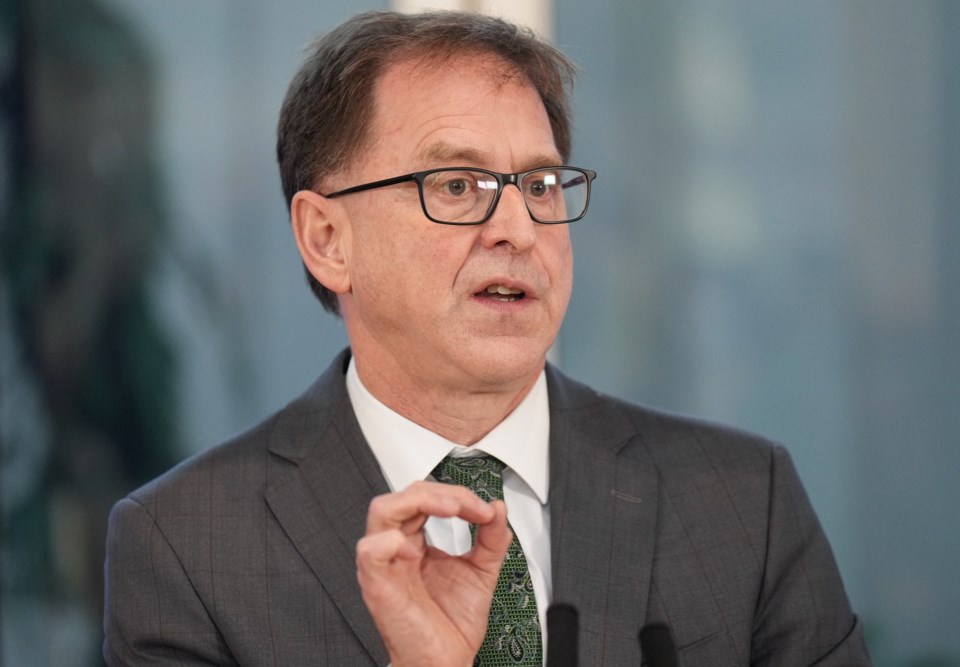British Columbia Energy Minister Adrian Dix says the province will have to "make choices" on programs within its CleanBC initiative given the repeal of the consumer carbon tax.
Dix told a news conference related to heat pumps that the New Democrat government is working with the provincial Greens to look at CleanBC, under an agreement between the two parties, on top of a budgetary review of the initiative.
But Dix also said the repeal of the consumer carbon levy earlier this month does not take away from the province's commitment to fight climate change.
"Carbon tax was a big part of a particular response to climate action from 2008 on in B.C.," Dix told the news conference in Victoria on Wednesday. "Obviously, it's no longer with us. But the issues around climate change are still with us, and we have to continue to have aggressive action in the community and by the government."
The carbon tax was one tool, he said, but there are many others.
To that end, Dix said the province is spending $100 million over two years to expand its rebate program for heat-pump installation in low- and moderate-income households, aiming to install more than 8,000 heat pumps in homes across B.C.
The money is flowing through the CleanBC Energy Savings Program, and Dix said it is being expanded to cover homes in multi-unit residential complexes later this year.
The program, which offers rebates to low- and moderate-income households to help with the costs of energy retrofits, was originally launched last June.
"We have to look at all the programs," Dix said. "And we're doing that like everyone else is, especially in light of the fiscal situation facing the province."
"This one, we think, makes sense for families, makes sense for affordability, and makes sense for the province as a really cost-efficient way to address climate change," he said of the expanded heat-pump program.
The province unveiled its latest budget in March, with the deficit forecasted to top $10 billion for the first time in the current fiscal year.
Jeremy Valeriote, interim leader of the BC Green Party, joined Dix for the announcement, saying it was "a good day" for the parties' agreement struck in March, setting out how they will work together in the legislature where the NDP holds a one-seat majority.
"Taking action on climate change can go hand in hand with solutions to the affordability crisis," Valeriote said. "By reframing and rethinking the problems we face, we can find a way for these important issues to be mutually inclusive."
Despite their agreement, Green legislative members have criticized the government on issues including the repeal of the carbon tax and proposed legislation on granting emergency powers to cabinet in light of tariff threats from the United States.
The federal government ended its carbon tax on April 1 and B.C. followed, but Dix said the NDP remains committed to fighting climate change using other tools.
He said tools such as the carbon tax and incentives for buying electric vehicles may come and go, but the overall direction of addressing climate change does not shift.
"I'm confident we're going to continue to take action here," he said, adding the heat-pump funding is an example of a measure that's focused on affordability and "works for people."
The results of the review of CleanBC will be released at a later date, Dix added.
This report by The Canadian Press was first published April 9, 2025.
Chuck Chiang, The Canadian Press




